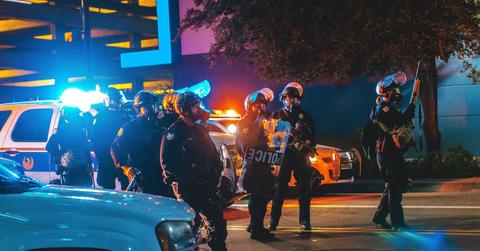Albuquerque Creates Third Public Safety Team For Those With Mental Illness

One of the reasons calls for police reform have occurred in the United States in the last few years is in light of the mental health crisis in the nation. Many residents of the U.S. are facing these crises alone. Sometimes, calls are made by concerned citizens or family members may call for help, resorting to 9-1-1, asking for help because society in general is not prepared to help. Unfortunately, neither are the police.
Albuquerque, NM recently resolved to deal with this issue, partially in response to the death of Elisha Lucerno, a citizen dealing with mental health issues after a brain diagnosis. Her family called police, hoping they would take her to the hospital. Instead, the Bernalillo County sheriff’s deputies shot her more than 20 times, killing her.
The city has created a third segment to its public safety: the police department, the fire department and now the behavioral health responders.
Director of the Albuquerque Community Safety (ACS), Mariela Ruiz-Angel says, “We’re not law enforcement, so we’re not here to cite you. We’re just here to check on you. How can we help?” Behavioral health responders, like the police and fire departments, may be sent out by 911 dispatchers.
New Mexico has been found to have one of the highest rates of fatal police encounters in the United States. The state has been under Department of Justice supervision since 2014 for this reason. As the DOJ has investigated the excessive and deadly force engaged in by the Albuquerque police, many of the deaths have been those of people with mental illnesses.
The behavioral health responders have been created in direct correlation to these actions by the police force. The ACS recruits and trains individuals with backgrounds in social work, peer support and counseling to be the team of responders dispatched when nonviolent and nonmedical emergencies arise. They are equipped to asses specific situations like mental health crises.
Additionally, these units are stocked with useful gear to offer, including water, blankets, snacks and hard warmers.
Albuquerque Police Department’s crisis intervention section, Lt. Matt Dietzel, stated, “I definitely think that ACS will assist us in reducing the number of people with behavioral health issues who are arrested.” Since the current likelihood of incarceration over hospitalization for people with mental illness is 3-to-1, the hopes are high for the units being dispatched.
Additionally, lack of shelter and addiction concerns are also being addressed in the hopes of further reducing many of the issues that previously have been met with police force and often death or injury.






